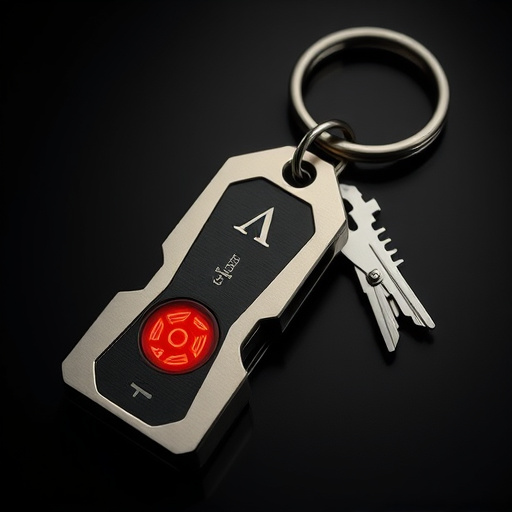In many US states, individuals can carry self-defense keychain tools like pepper spray or tactical flashlights for personal safety, but legality varies greatly by state. Understanding local regulations is crucial to ensure compliance and peace of mind when using these compact protective devices. "Permitted Self Defense Keychain Tools" range from simple to advanced models, offering convenience for everyday carry while navigating potential threats.
In today’s world, personal safety is paramount. The legal carry of self-defense tools, including protective keyring devices, varies greatly by state. This article explores the legal status of keychain self-defense tools, delving into permitted defenses and their limits. We uncover popular devices and guide you through navigating state-specific regulations for your peace of mind. Discover which states allow these handy self-defense keychains and gain insights to help you stay safe.
- Legal Status of Keyring Self-Defense Tools
- Permitted Defenses and Their Limits
- Popular Keychain Self-Defense Devices
- Navigating State-Specific Regulations
Legal Status of Keyring Self-Defense Tools
In many jurisdictions, the legal status of self-defense tools carried on keyrings is a gray area, but certain states have clarified their positions. Permitted self-defense keychain tools are generally recognized as lawful if they are designed for personal safety and do not exceed established legal limits. These limits often include restrictions on blade length and overall weapon size, ensuring the device remains easily concealable. Some states explicitly allow specific types of keyring self-defense tools, such as pepper spray or tactical flashlights, while others may have more open definitions, considering any tool that can serve as a deterrent to be permissible if carried responsibly.
Understanding the legal implications is crucial for citizens looking to protect themselves legally. States with permissive laws regarding personal defense devices on keyrings empower individuals to take proactive measures for their safety without undue restrictions. However, it’s essential to check local regulations, as laws can vary significantly between regions, ensuring compliance and peace of mind while carrying a self-defense tool on your keychain.
Permitted Defenses and Their Limits
In many states, individuals are permitted to carry self-defense keychain tools under certain circumstances, often as a form of personal safety. These tools can range from simple pepper spray keychains to more complex devices designed for emergency situations. However, it’s crucial to understand the permitted self-defense keychain tools and their limits. Each state has its own set of laws governing what constitutes legal self-defense and the specific items allowed. For instance, while some states allow small firearms or stun guns on keychains, others have strict regulations or outright ban such devices due to public safety concerns.
The use of these tools is typically limited to situations where an individual feels their personal safety is at risk. This includes cases of imminent threat or as a last resort when other means of escape or de-escalation are not feasible. It’s important for carriers to be aware of their state’s self-defense keychain laws and the specific circumstances under which these tools can be legally employed, ensuring they remain within legal boundaries and avoid potential criminal charges or civil liabilities.
Popular Keychain Self-Defense Devices
In today’s digital era, personal safety has become a paramount concern, and individuals are increasingly seeking innovative ways to protect themselves. One such solution gaining popularity is the use of protective keyring devices designed for self-defense. These compact and often discreet tools have emerged as permitted self-defense keychain options, offering users an extra layer of security in various situations.
There’s a wide array of keychain self-defense devices available on the market, catering to different preferences and needs. From simple pepper spray keychains to more advanced tactical options equipped with sharp blades or stun features, these tools promise to provide a swift and effective response during emergencies. Their portability makes them convenient accessories for everyday carry, ensuring that individuals can stay safe while navigating unfamiliar environments or potential threats.
Navigating State-Specific Regulations
Navigating state-specific regulations is an essential aspect of understanding legal carry for protective keyring devices. Different states in the US have varying laws regarding self-defense tools, including permitted keychain tools for self-protection. For instance, some states allow for basic self-defense items like pepper spray or a small stun gun, while others may restrict these to law enforcement only. It’s crucial to review each state’s guidelines carefully before considering carrying such devices.
Knowing what is legal and what isn’t can be challenging due to the diverse and sometimes complex legislative frameworks. Therefore, individuals looking to carry protective keyring tools for self-defense should stay informed about their state’s specific regulations. This ensures they remain within legal boundaries and can make an informed decision about their personal safety measures.
The legal landscape surrounding protective keyring devices varies greatly across states, but these innovative self-defense tools offer individuals increased peace of mind while navigating unfamiliar places. Understanding the permitted defenses and state-specific regulations is crucial when considering a keychain self-defense device. With a range of options available, from pepper spray to stun guns, folks can empower themselves with knowledge and choose the right tool for their needs. Remember that staying informed about your rights and responsibilities is key to ensuring these devices remain legal and effective in your state.
